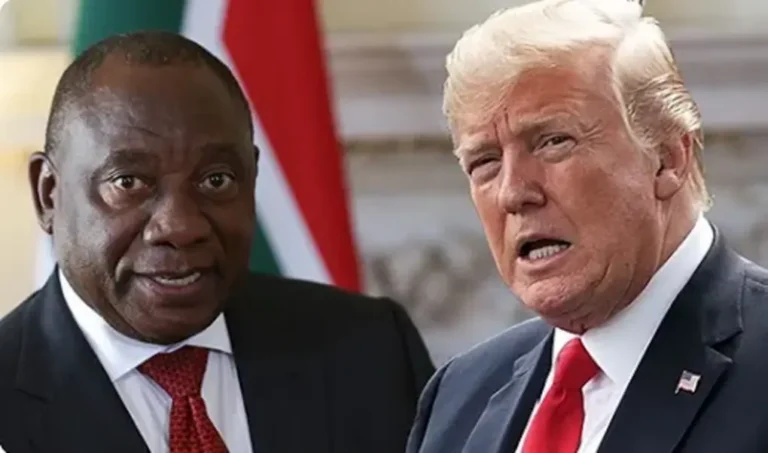This week sensational social media reports claimed that South Africa had retaliated against US President Donald Trump’s decision to suspend financial aid by shutting down American businesses and halting mineral exports to the US.
The claim spread rapidly, fuelling speculation and debate. However, no official statement or corroborating evidence supported the reports, making them entirely false.
But what if they were true? What would be the economic, political and diplomatic consequences of such a dramatic move?
Could South Africa – or any other African country – realistically afford to suspend US business operations? And how would Washington respond?
The United States is a major economic player in South Africa, with American businesses generating billions in annual profits from operations in the country.
Companies such as Ford, Coca-Cola, McDonald’s and tech giants like Microsoft and Google have deep investments in South Africa, creating thousands of jobs and contributing significantly to the economy.
“Suspending US businesses would, therefore, trigger massive layoffs, disrupt supply chains and lead to investor panic,” political analyst Donald Porusingazi told APA on Friday.
South Africa, already grappling with high unemployment and economic stagnation, would suffer immediate economic turmoil.
“For the US, the impact would also be significant, particularly in sectors reliant on critical minerals sourced from South Africa such as platinum, manganese and chromium, which are essential for industrial and technological applications. A sudden halt in exports could force the US to seek alternative suppliers, potentially at higher costs,” he said.
South Africa holds the world’s largest reported reserves of gold, platinum group metals, chrome ore and manganese ore, and the second-largest reserves of zirconium, vanadium and titanium.
Porusingazi warned that a move to suspend US businesses would also not go unnoticed in Washington.
“The US has historically responded harshly to economic restrictions imposed by foreign governments, and South Africa could face sanctions, withdrawal of trade privileges or diplomatic isolation.”
Trade agreements such as the African Growth and Opportunity Act (AGOA), which grants South African exports preferential access to US markets, would be revoked.
This would deal a severe blow to South African industries, particularly automobile manufacturing, agriculture and textiles that depend on US demand.
Furthermore, the US could leverage its influence in global financial institutions like the International Monetary Fund and World Bank to pressure South Africa, making future international loans and investments more challenging.
Porusingazi, however, noted that while such a move would be unprecedented, it would signal a bold assertion of African autonomy in global trade and economic policy.
“Historically, African nations have often been on the receiving end of Western economic decisions. A retaliatory stance against U.S. financial policies would challenge traditional power structures, potentially inspiring other nations to reconsider their economic dependencies.”
However, the reality remains that economic interdependence makes such drastic actions highly risky for both parties.
“South Africa is not China or Russia – it lacks the economic leverage to counteract the potential fallout from a U.S. backlash,” the analyst said.
While the social media reports were false, the debate they sparked highlights an important conversation about Africa’s economic sovereignty and its reliance on global superpowers.
“Does this scenario expose Africa’s dependence on Western economies? Absolutely – and it underscores the need for African nations to diversify trade relationships and strengthen regional economic resilience.”
JN/APA


